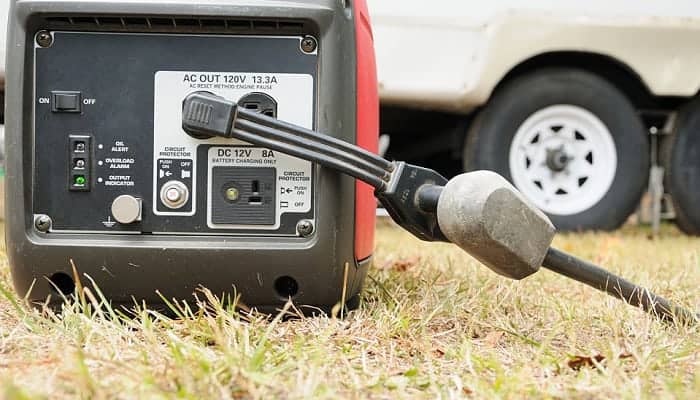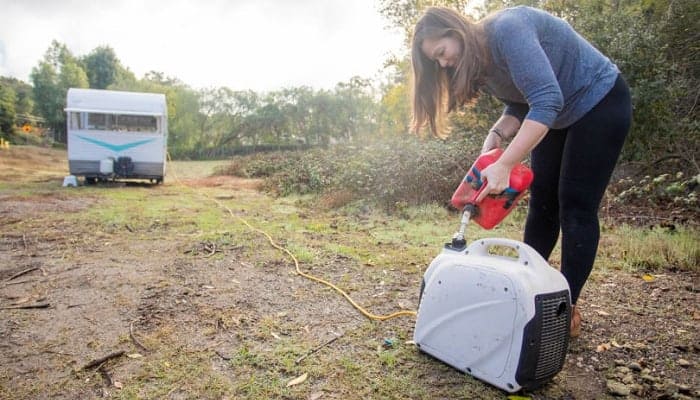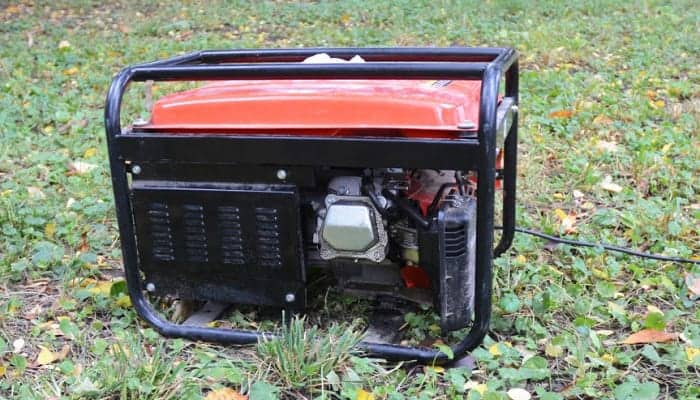You just bought your brand new RV, excited for all the camping trips around the country you’re going to go on with this new ride. But not only will an RV need gas to run but it will also need a sufficient electricity generator to power all the much-needed appliances inside such as the fridge and air conditioner.
There are plenty of options of generators to pick from, and we may get stuck on what and where to start. How large of a generator do I need for my RV AC and other appliances? This article will answer this valid question.
Table of Contents
How Does an RV Generator Work with AC Units and Other Appliances?
Out of all the appliances you’re planning to take in your RV, the air conditioning unit will use up the most wattage from your generator. It is also essential to take note that RV generators have two measurements, a start-up wattage requirement and a running wattage requirement.
- Start-up wattage requirement– is the energy required to start an appliance and most often will need the most power.
- Running wattage requirement– is when an appliance has already started up and is consistently running; this often results in lesser wattage usage than during start-up.
This means that the minimum wattage of the generator you get needs to be equal to the starting wattage requirement of your AC unit so that it has enough power to start it. Here is a chart giving some examples of starting and running wattage requirements for different AC unit sizes.
| Air Conditioner Size | Approximate Start-Up Wattage | Approximate Running Wattage |
| 13,500 BTU | 2800 – 3000 Watts | 1500 – 2000 Watts |
| 15,000 BTU | 3300 – 3500 Watts | 1300-800 Watts |
Fun fact: BTU is a standard unit of measurement for AC units that scientists use to identify its capacity. BTU stands for British Thermal Unit. To power the average RV air conditioning unit, you will need around 2000-3000 Watts generator.
We also need to consider that most generators have max wattage ratings and also running wattage ratings. This means that when a 3000 Watts generator will give you 3000 Watts energy required to start your AC unit but might only give 2600 watts for long term use.
After starting up a 13,500 BTU AC unit which may run at 2000 watts, you will only have 600 watts left. You might want to run other appliances or electronics while the AC is on. Like listening to a radio or watching TV. So here is another chart that shows some approximations of wattage uses of different electronics or appliances you may use in your RV.
| Item Name | Start-Up Wattage | Running Wattage |
| Fridge | 600 Watts | 180 Watts |
| Small Flat Screen TV | 120 – 200 Watts | 120 – 200 Watts |
| DVD Player | 350 Watts | 350 Watts |
| Microwave | 1000 Watts | 1000 Watts |
| Radio | 50 – 200 Watts | 50 – 200 Watts |
| Satellite Receiver | 250 Watts | 250 Watts |
| Laptop | 250 Watts | 250 Watts |
| Small Portable Fan | 120 Watts | 40 Watts |
| Electric Counter-top Grill | 1700 Watts | 1700 Watts |
| A 1600 Watts Hair Dryer | 1900 Watts | 1800 Watts |
If you are planning to use multiple different appliances and electronics while the AC is on, you will undoubtedly need a generator with a bigger capacity.
Other Factors to Consider
An essential factor to consider when choosing a generator is its noise levels. You don’t want a generator that will keep you awake all night or disturb any campers nearby.
Most portable generators are known and praised for their quiet operations at around 50-65dBA. In comparison, a hairdryer is 80dBA; each 10dBA increase is two times as loud as the previous noise. This means a little difference in dBA levels are a considerable increase in noise.
Another factor is the generator’s weight, the large the capacity of the generator, the bigger it will be. 3000 watts – 6500 watts’ generators have a standard or optional wheel kits included with the purchase. Another option is buying two fewer capacity generators and linking them together. It is essential that you can move your generator safely and effectively without straining yourself.
Final Thoughts
You have various options for picking a suitable generator, depending on the size of your AC unit and the appliances you plan on bringing in the RV. I hope that this article made you more knowledgeable on the subject and helps you find and pick the right generator that suits your needs.

Hi, I am Tom Hank, an RV-er since 2014. Back then, I started without much help. As you can imagine, the struggles are endless. But now, you do not have to begin your adventures knowing next to nothing about RV lives.




